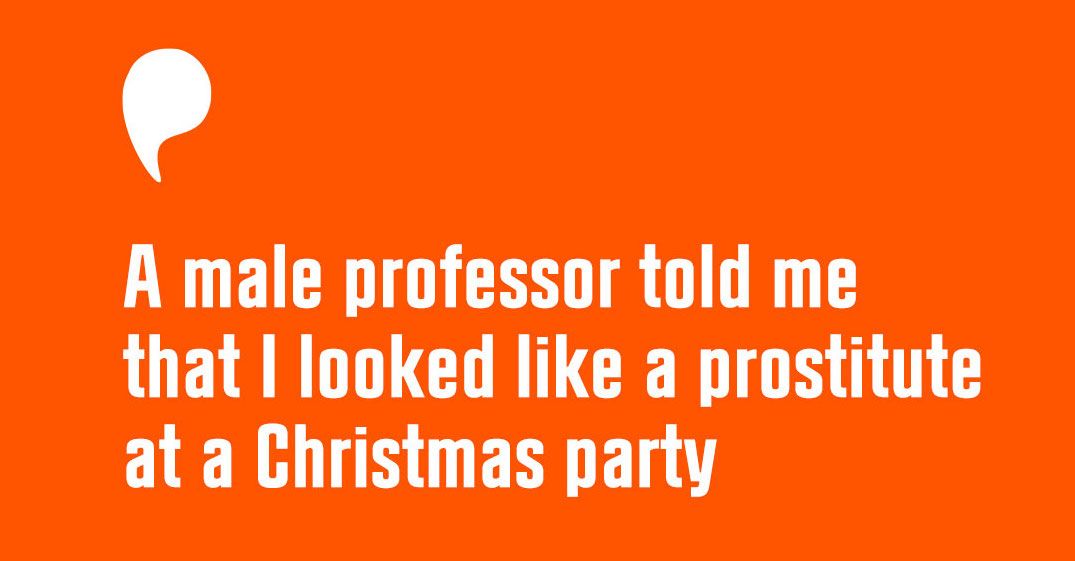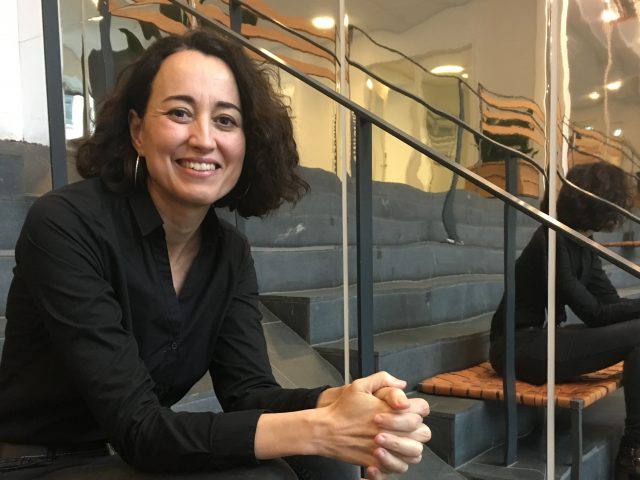Sexism in academia: 700 researchers’ stories to become a handbook on sexism

More than 700 researchers from across the Danish universities have signed a letter against sexism in academia and shared anonymous examples covering everything from rape to degrading and suggestive remarks. Sara Louise Muhr, Professor and co-organizer behind the letter, wants to make a handbook based on the stories.
“I have wondered when it would be our turn to speak up. Because, of course, it happens in academia too,” says Sara Louise Muhr, Professor at the Department of Organization at CBS.
She is one of 16 co-organizers behind a letter that researchers across the Danish universities have been asked to sign if they have experienced sexist behavior in academia first hand, have witnessed it or known of it happening – as well as sharing anonymous examples of sexist behavior they have experienced.
So far, 689 researchers – both men and women – have signed the letter since it was distributed among researchers on October 2. Moreover, more than 700 examples have been sent to the email address: sexism.at.danish.university@gmail.com that has been set up.
“Over the past week, we have both laughed and cried. I myself have helped to sort through the stories that have been shared, and it’s heavy. The number is high and many of the stories are intense,” says Sara Louise Muhr, adding that signatures and stories keep coming in.
Sara Louise Muhr explains that another co-organizer reached out and asked if she wanted to initiate the letter. But she insisted that more than two persons were needed.
“We do not want this to be about individual stories, but about the many, many stories out there. Therefore, we reached out to colleagues we trusted and whom we believed would support it, to emphasize that we are a whole group across universities behind this,” she says.
Based on the many anonymous stories that have been sent to the email address, the co-organizers are planning to compile a handbook of different examples of sexist behavior and exercises for employees and managers.
“Hopefully, reading and discussing the collection of stories will make it easier for people to detect the pitfalls and avoid them. And I really hope that the stories can make people reflect on what they would do in that situation. We are not to engage in victim blaming or identify the predators. We need to look ahead. Not backwards.”
“They can’t afford to jeopardize their jobs”
Although many have already signed the letter, putting their name on the list was not always easy, explains Sara Louise Muhr.
“Many were nervous about the consequences of signing the letter and sharing examples. How might this affect one’s career and relations with colleagues? We too have discussed whether we dared to do it,” says Sara Louise Muhr.
However, in the end, it had to be done. And it was important that the initiative was made by mainly permanently employed researchers, explains Sara Louise Muhr.
“We have a large group of temporary employees who depend on their networks and social work relations. So if they experience something, they don’t always dare to speak out for fear of being seen as the ‘difficult’ one or a spoilsport and ultimately risking not being chosen for the next job. Because this happens at the level of research groups, leaders might very well not be aware of the scale of the problem,” she says, emphasizing why the initiative to collect signatures had to come from a permanent employee.
“Temporary employees can’t afford to jeopardize their jobs. Therefore, we, the organizers, had to take steps. If we didn’t, who would?”
Dispelling the myth about equality
Sara Louise Muhr explains that what characterizes the anonymous stories is that they illustrate how women and what is feminine can be degraded. And together, the examples show that this is not happening just once – but repeatedly, and then it is problematic.
“If someone says or does something once, it’s not necessarily an issue – but it’s the continuation and repetition that is problematic. Then it becomes systematic, systemic and structural. And all of these examples and stories show that repetition exists. Many women experience being told over and over again that they are worth less and are less intelligent,” she says.
Sara Louise Muhr believes there is a good chance that the letter, along with the focus and examples from other industries and workplaces – including Danish media, doctors and politicians – can create the changes that are needed.
“I hope that we can dispel the myth about equality once and for all. We have this strong belief that sexism doesn’t exist in Denmark. To me it’s evident that sexism exists, and it has taken some years to acknowledge that in Denmark,” she says and continues:
“We haven’t been ready to face the problem. I think it has something to do with the fact that this time it began with the media themselves. The media now takes the matter seriously. Last time, in 2017, it was kind of hushed up, and female radio hosts kind of laughed at #MeToo and said it was too much. Now, it has a more profound and nuanced focus, and I believe people are ready to discuss whether or not we are equal.”
Stop and reflect
Sara Louise Muhr hopes that the signatures and shared stories will function as a necessary push to change the culture in academia – at all levels.
She is asking for better and clearer policies; clarity regarding where and whom to go to; and that there is more focus on helping mid-level managers to act on this.
“This is very much a leadership responsibility. And the top management’s is responsible for preparing mid-level managers to even be able to talk about sexism and offensive behavior with their employees. That’s what we need if we want to change the culture,” she says.
Sara Louise Muhr explains that the responsibility for changing the culture also lies with employees and colleagues, who must be better at talking about it.
“We have to talk about what we should do if we see or experience it. A lot of people are still laughing about it, and that’s actually the worst thing you can do to a person who shares an experience involving sexism. So we must dare to bring it up in collegial forums in a serious and constructive way,” she says.





































































































































Comments